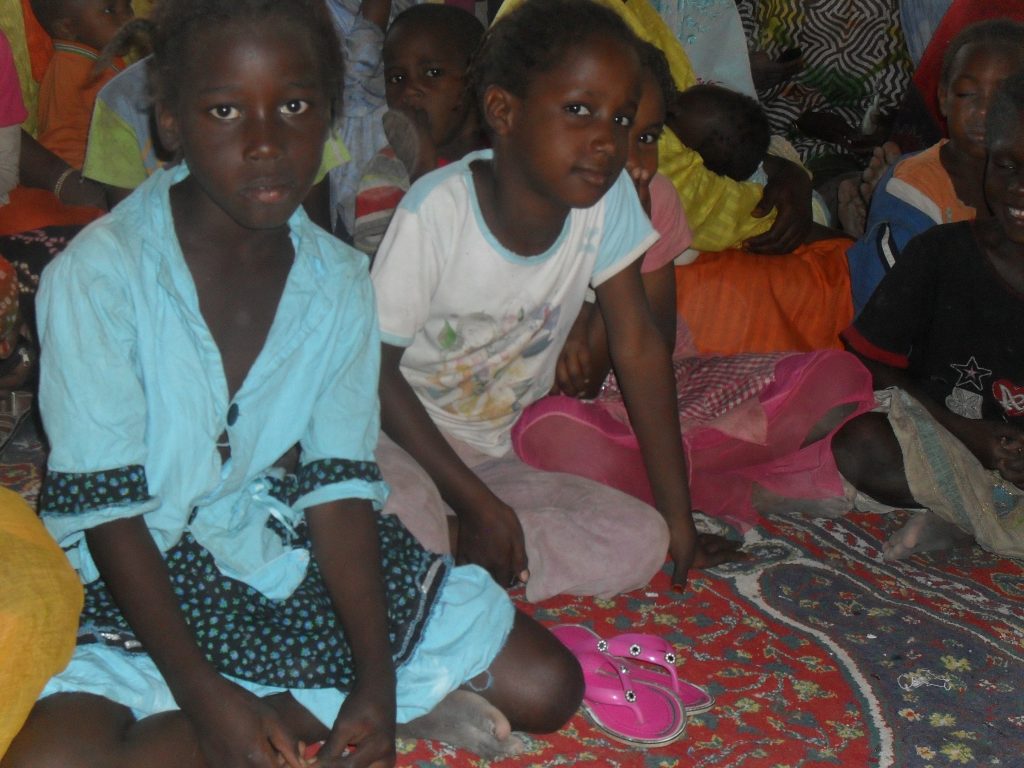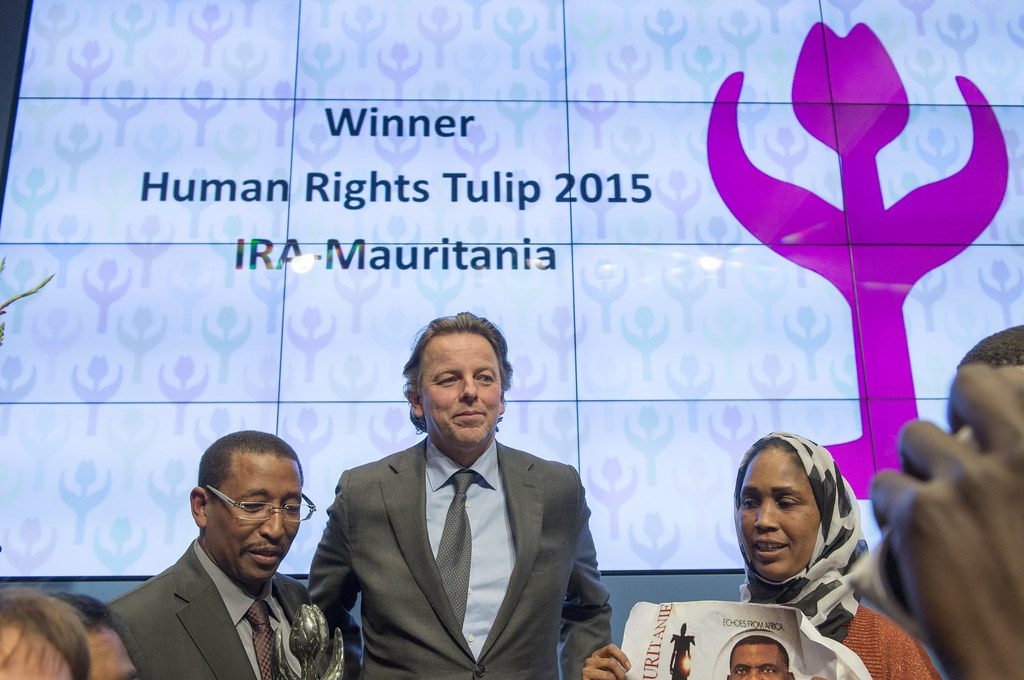Chains are for the captive. Chains are for the slave who has just become a slave. But the multigenerational slave, he is a slave in his own head. And he is totally submissive. And unfortunately, it’s this type of slavery that we have today.
Boubacar Ould Messaoud, a former slave and co-founder of SOS Slavery.
Image Source: Alvaro1984 18
Mauritania, one of the World’s leading iron ore producers, hides beneath its everlasting sand dunes the most terrifying truth: slavery. This desert nation, situated in northwest Africa – bordering the Atlantic Ocean to the West and the Saharan Desert to the East, was indeed the last country to abolish slavery, and unfortunately is one of the few remaining countries in which anti-slavery laws are not fully enforced. We must all be aware of the dire conditions of slaves in Mauritania and of the means by which we can help them. Local human rights groups in Mauritania should receive financial and technical aid from supranational nongovernmental organizations. External states must pressure the Mauritanian government in enforcing anti-slavery laws and prosecuting all slave owners.
Slavery in Mauritania is a tragic cycle, passed down from one generation to the next, making it difficult to escape. Even though the practice was abolished in 1981, criminal laws, which enabled the slaveholders to be prosecuted, passed recently in 2007. Yet to this day only a few slaveholders have actually been arrested and put on trial. Meanwhile, according to SOS Slavery, up to 600,000 Mauritanians (17% of the population) remain enslaved.
Before exploring the different ways through which we can help current and former slaves in Mauritania, we must understand the history and the culture within the country which allows the ongoing existence of the practice.
The ethnic demography of Mauritania has always been a source of internal political instability. Black Moors, or Heratines, compose the largest ethnic group in the country, comprising of40% the population. They are descendants of slaves who were captured by the Arab-Berbers during Arab slave raids to sub-Saharan Africa. The White Moors, or the Beydanes, are the second largest ethnic group. They are of Arab/Berber descent and have been controlling the region since the seventeenth century. The other ethnic groups in the country are non-Arabic speaking sub-Saharan Mauritanians. According to the country’s constitution and the de facto government, all ethnicities are legally equal in Mauritania, but Black Moors are generally seen as inferior by their lighter-skinned countrymen. Indeed, the majority of the current slaves in Mauritania are Black Moors. The tragedy of their stories resonates across the country.

Image Source: Magharebia
Many former slaves testify to having been beaten and sexually harassed by their former masters. Rape and forced abortion are common stories among former female slaves, one of whom is Moulkheir Mint Yarba. Yarba had been raped by her master and gave birth to a girl. One day, when she returned from tending her master’s goats out on the Sahara Desert, she came face to face with something unimaginable: Her baby girl had been left outside to die. She recalls him saying “Her soul is the soul of a dog.” Moulkheir Mint Yarba escaped her master in 2010. Since then she has been seeking for justice. Yet the Mauritanian courts refuse to prosecute her former ‘owner’.
All current slaves in Mauritania are born into slavery. Subsequently, most of them never receive education. Thus, they never acquire the necessary knowledge and skills which would enable them to flee their captive life. In fact, many slaves who escape return back to their masters for food and shelter. Yet the most daunting truth about slavery in Mauritania is not even the former slaves choosing to live a captive life, but that the current slaves embrace the caste system and hence their social status as a slave. Moctar, a former slave, during an interview with Self Koulmate explained how his mother and brother refused to escape with him. He then adds, “When I was younger, my mother told me every night that we must respect our masters, because their caste is higher than ours, and they are saints.”
For this reason, to deconstruct the caste system, education is the main point of focus for many abolitionist local human rights groups. Since its establishment in 1995, SOS Slavery has opened several schools in which they teach former slaves a variety of basic skills, from sewing to braiding hair. These schools empower women to gain financial independence and facilitate former slaves’ integration into society. Moreover, several groups have organized events through which they inform people living in rural parts of the country of their constitutional rights. The most prominent of these events is the Caravan of Liberty. The Caravan of Liberty was composed of several human rights groups that in November 2014 traveled from town to town to inform villagers of their rights and document any violations. Unfortunately, the Caravan was stopped by Mauritanian police forces. Many activists were arrested and imprisoned on counts of ‘non-armed rebellion’ and ‘refusing to comply with the orders of administrative authorities’. Two of these activists were Biram Dah Abeid and Brahim Bilal Ramdane, the co-founders of Initiative for the Resurgence of the Abolitionist Movement (IRA-Mauritania). They were released two years later after mounting internal and external pressure. This incident, as well as many others, shows how difficult it is for abolitionist human rights groups to further their cause and fight for justice in Mauritania.

IRA-Mauritania is awarded the Human Rights Tulip in 2015 by the Ministry of Foreign Affairs of Netherlands
Source: Ministerie van Buitenlandse Zaken
IRA-Mauritania, alongside SOS Slavery, is the most significant anti-slavery human rights group in Mauritania. However, the organization, which had a prominent role in the first arrest and imprisonment of a slave owner, is being threatened by the Mauritanian government, which has not allowed the group to legally register as a nongovernmental organization (NGO). Without this official status, IRA cannot receive funds through grants. As people who live in more developed parts of the world and who enjoy more freedom, we can support local human rights groups, such as IRA, firstly by raising awareness. Slavery in Mauritania is an issue that rarely finds place in international media. International media outlets should increase their coverage of Mauritania and the abolitionist human rights groups in the country. As ordinary citizens, we also have the power to raise awareness through social media. The Arab Spring and the worldwide protests against climate change illustrate the power of social media in igniting social action. As more people learn about the ongoing atrocities in this desert nation, the Mauritanian government can be pressured to enforce anti-slavery laws, arresting and imprisoning slaveholders, demonstrated by the case of IRA leaders Biram Dah Abeid and Brahim Bilal Ramdane, discussed above.
Furthermore, we can pressure our governments to create and enforce economic sanctions on Mauritania. Economic sanctions could incentivize the Mauritanian government to acknowledge the existence of slavery in the country and actually prosecute slave owners and legally recognize local abolitionist groups. The United States in 2018 already announced that it would exclude Mauritania from the U.S. African Growth and Opportunity Act (AGOA) because of the lack of progress on the issue of human rights. Other countries should also halt their grants to Mauritania, most importantly the EU, which has been aiding Mauritania through the ‘Programme Indicatif National Mauritanie’, cooperation and development program package that ends in 2020. The EU should not renew the package if the Mauritanian government continues to refuse to acknowledge the existence of slavery in the country. Mauritania’s main source of revenue comes from iron ore and fish exports. A threat to impose economic sanctions on these two products, especially by France, Spain, China, Japan and the United Arab Emirates – Mauritania’s main trading partners- would pressure the Mauritanian government to recognize the existence of slavery and to prosecute slave owners.
Finally, countries and supranational organizations such as the EU and the UN should financially and technically support local human rights groups in the country. Even though there are international civil societies, like Minority Rights Group International, that provide technical and economic support to these groups, their impact could be increased if states aided them directly. For instance, the United Nations Development Fund can work with SOS Slavery and help the group in building schools for freed former slaves. It can equally train SOS Slavery and IRA activists who have immediate and personal contact with survivors of slavery. In fact, there are many actions international NGOs could take in order to fight against the institutionalized discrimination in Mauritania. And there are many actions that we, as ordinary citizens, can take in order to raise awareness and push our politicians to address the issue.
According to the 1998 Rome Statute of International Court, slavery is a crime against humanity. The eradication of slavery should be a common goal, furthered by nations all around the world. In the 21st century, we should not be tolerating the existence of this obsolete institution.
It should be our common duty to end all types of injustice and discrimination, which have plagued human societies for centuries. Mauritanian slave owners must be prosecuted, survivors should be helped and the Mauritanian government must be held accountable.
Featured Image Source: Michał Huniewicz